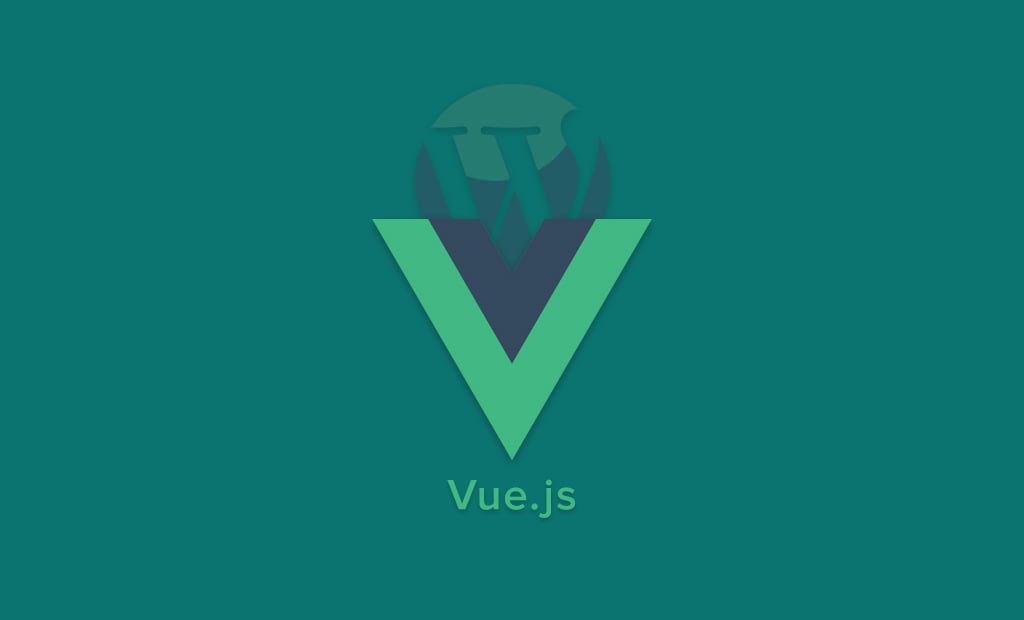
Why Vue.js Can Be a Good Fit for WordPress
The 2nd beta of WordPress 4.9 is out now. The future update is expected to be officially released on November 14th, 2017. On the other hand, the Gutenberg Project is going on a somewhat different path – Matt Mullenweg has already confirmed that Gutenberg will be coming along with WordPress 5.0, but this version would come out only after Gutenberg is ready. The approach is a part of Mullenweg’s new strategy. He’s aiming for core development which would make releases less time-based and more project-based.
In case you have missed it, Matt Mullenweg posted some quite interesting information about the state of React and WordPress. Shortly, WordPress is looking for alternative Javascript frameworks to use within the WordPress core because of the contentious Facebook patents. The discussion about selecting a new framework is heated up again and it seems that Vue is once more a leading contender.
On React and WordPress
In November 2015, Automattic – the company behind WordPress – have announced that their WordPress shell is running on Facebook’s React view library. Automattic used the React and Node.js as a basis for the rewriting of WordPress.com from the ground-up. They called the project Calypso and it’s one of the largest React-based open source projects.
Earlier in 2017, the core contributors of WordPress have started a discussion about selecting the new JavaScript framework for their new core features. After some serious thinking and conversations, the WordPress core team narrowed down their options to React and Vue.js.
More recently, the WordPress community has started using React for Gutenberg, which is the largest core project taken by them in years. While this certain change is not that interesting for the average user, it actually impacts the build of WordPress. While WordPress.com has gone primarily JavaScript and Calysto, Gutenberg still uses PHP as managing code. With that said, if you look carefully through the Gutenberg plugin files you will be able to see that JavaScript and React.jc are among the key integrals in the code. This is why Gutenberg offers a view of the scaffolding for moving Calypso JavaScript features into the PHP core of WordPress.org.
However, a couple of weeks ago, Facebook announced their decision to dig in more on their patent clause additions to the license for React, even though Apache has stated that it’s no longer allowed for the Apache.org projects. The announcement led the WordPress team to the decision to explore additional options that would not lead to licensing issues. What’s more, the team behind the Gutenberg plugin will take a step back and rewrite a new editor called Gutenberg, which has a prototype built on React and was using a different library. This will most likely delay the editor at least a few weeks, probably pushing the release date to next year.
To Vue or Not to Vue?
The current question is, which library is the team going to choose? Some of the libraries that are being considered are Vue.js and Preact, with Preact seemingly having the wider fan-base.
Vue.js, however, seems to be the more popular choice for WordPress developers. It is becoming hugely popular in the JS dev community because everyone loves working with its API. It seems to provide a simpler approach to new learners and thus it’s gaining a fair amount of popularity as of late.
However, Vue.js seems to be the more popular choice when it comes to WordPress developers. It is becoming hugely popular in the JS dev community because everyone loves working with its API. It seems to offer a simpler approach to all new learners, thus gaining a fair increase in popularity lately.
What is Vue.js?
Vue.js (pronounced /vjuː/, of view) is a new-comer and it was initially designed with the aim of merging the best bits of React and Angular. It’s a JavaScript library for building interactive UIs using the MVVM (Model-View-ViewModel) architectural pattern.
It is licensed under the MIT license. Unlike the other monumental frameworks, it is designed in its core to be further adoptable in different use cases that range from embedded widgets through plugin development, to full single-page apps. It’s composed of an approachable core library which focuses solely on the view layer, and a supporting libraries ecosystem to help you tackle complexity in larger Single-Page Applications.
Why use Vue?
When comparing Vue with some competitors such as Angular, React, etc., it boasts of beating a couple of them in some particular aspects. These aspects include simple API, size, performance, learning curve, etc. Once you start working with it you’ll quickly realize that Vue.js is not only much simpler and easier to learn, but also more flexible. VueJS has a large set of followers and it is relatively easier to adopt, even for beginners. You can use it with or without jQuery. You won’t need to install any plugins, though many are available. And it has a proven track record of success with Laravel.
Vue.js has a goal to provide the benefits of reactive data binding and composable view components with an API that is as simple as possible.
Some of the basic features of Vue.js are:
- Component-oriented development style
- Lean and extensive core
- Flexible transition effect System
How to use Vue.js?
There are various methods for including a Vue.js in web-based projects:
- Though you can get the latest release of Vue.js from GitHub, you might find it easier to load it from a CDN by including a <script> tags in our HTML type file.
<script src="https://cdnjs.cloudflare.com/ajax/libs/vue/1.0.26/vue.min.js"> </script>
- The second way for installing that is by using a Node Package Manager (NPM). NPM is the recommended installation method when building large-scale applications with Vue.js.
- The third method is to Install using the Bower.
- Fourthly you can use a Vue-CLI to set up your project. Vue provides official CLI for quickly scaffolding ambitious Single Page Applications.
Fancy giving Vue.js a try? There is absolutely no need to install anything to try it out with FastComet services. Here is the binary file for Vue.js on the server:
/usr/local/bin/vue
FastComet and Vue.js
Vue.js is used by many companies and people across the globe and it is fully supported by FastComet hosting services. If you’re going to build modern interfaces with Vue.js, you would definitely need a modern Vue.js Hosting provider. Your sites, Vue.js install, interfaces, and applications all come hosted on our blazing-fast platform. You’ll get an extra speed boost when you choose to host on our FastCloud Extra featuring up to 300 X faster page loads compared to competing Vue.js Hosting providers.

The latest tips and news from the industry straight to your inbox!
Join 30,000+ subscribers for exclusive access to our monthly newsletter with insider cloud, hosting and WordPress tips!



No Comments